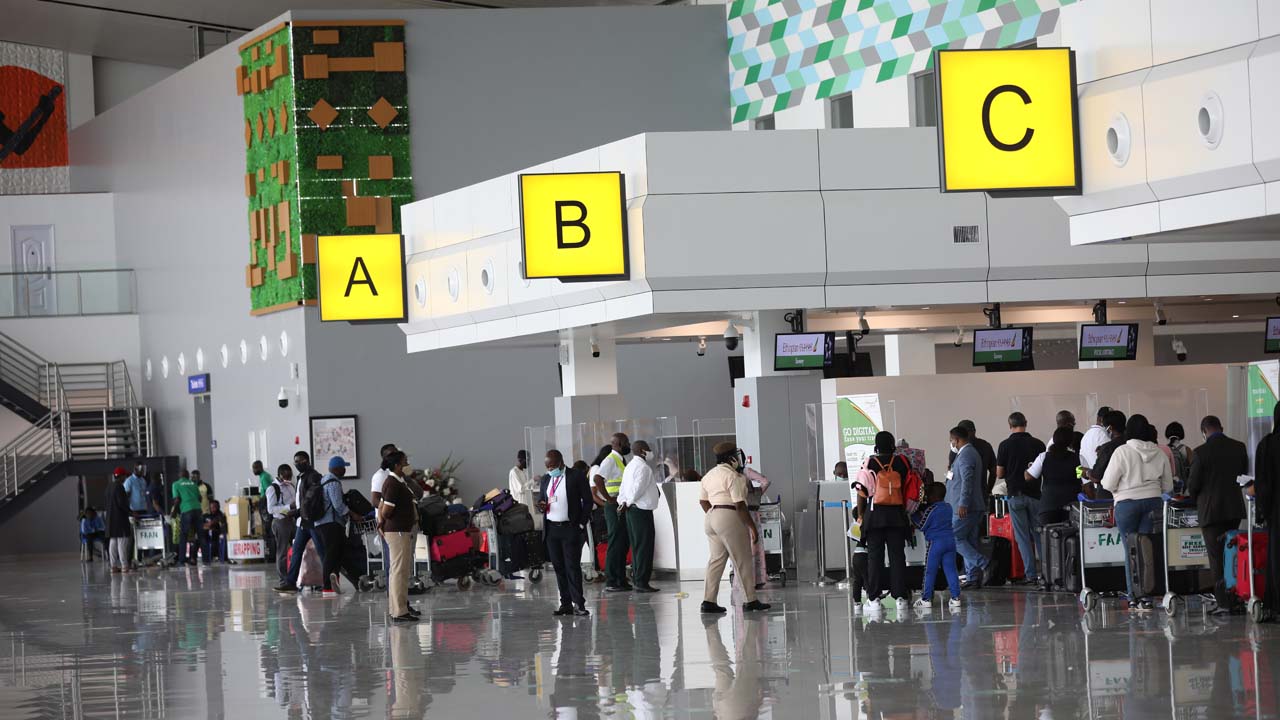(Photo by Kola Sulaimon / AFP) • FG, operators divided on implementation strategy, prospects
• Local airlines lack corporate governance, cooperation to compete – Experts
With no structure in place these past four years, Nigeria lags behind other African countries in the race for open skies agenda in air transport, which is estimated to be worth over $1.3 billion in revenue earnings yearly.
Despite being a continental power-house and signatory to the Single African Air Transport Market (SAATM) treaty, internal wrangling between the Federal Government and its implementing partners, the airlines operators, has left the initiative in a balance, with attendant effects on the implementation of the African Continental Free Trade Area (AfCFTA) agenda.
While the Federal Government aims to float a new national carrier to spearhead SAATM, local airlines’ operators said they should not be shoehorned into continental aeropolitics that is allegedly designed to rip-off the Nigerian market in favour of bigger African airlines.
Aviation stakeholders, however, fault protracted market protectionism in the face of low connectivity, urging both the Federal Government and operators to wake up to reality, or be left behind. Specifically, they request the local airlines to complement acquisition of new aircraft with corporate governance, international certification and alliances to become competitive in the open market era.
President Muhammadu Buhari, at the 30th Ordinary Summit of the African Union Assembly of Heads of States and Government, held in Addis Ababa, in January 2018, signed SAATM treaty to enable African airlines to fly without restrictions and change the narrative of Africa operating only two per cent of global air traffic.
Till date, 35 of 55 AU-member countries have signed up to SAATM. They are: Benin, Botswana, Burkina Faso, Cabo Verde, Cameroon, Central African Republic, Congo Brazzaville, Cote d’Ivoire, Egypt, Ethiopia, Equatorial Guinea, Gabon, Gambia, Ghana, Guinea (Bissau), and Guinéa.
Others are: Kenya, Lesotho, Liberia, Mali, Morocco, Mozambique, Namibia, Niger, Nigeria, Democratic Republic of Congo, Rwanda, Sénégal, Sierra Leone, South Africa, Swaziland, TChad, Togo and Zimbabwe. These countries represent over 80 per cent of the existing aviation market in Africa.
The International Air Transport Association (IATA), a clearing house for 290 global airlines, estimates that opening up Africa’s skies will promote the value of aviation throughout the continent, boost traffic, drive economies and create jobs.
IATA survey has it that if just 12 key African countries opened their markets and increased connectivity, an extra 155,000 jobs and $1.3 billion in yearly Gross Domestic Product (GDP) […]
